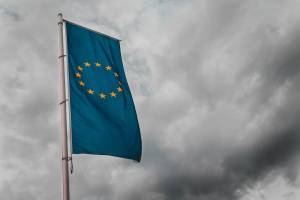
European Union to enforce stricter political ad regulations on social media
The European Union has taken a decisive step to ensure transparency in political advertising on major tech platforms. In a landmark agreement reached late Monday, Bloomberg reports that EU countries and European Parliament lawmakers have set forth new rules that will compel social media giants like Google and Meta Platforms to provide clear labeling of political ads, including details on funding and targeted elections.
EU tightens regulations ahead of key votes
As the EU braces for significant voting events next year, including the European Parliament elections in June, the need for clarity and accountability in political advertising has become increasingly urgent. Therefore, these new regulations aim to mandate that all political ads clearly disclose who is paying for them, the cost incurred, and the specific elections they target.
Fines for noncompliance
The rules carry substantial weight, with potential fines of up to 6% of an advertiser’s annual turnover for violations. This stringent measure underscores the EU’s commitment to enforcing these regulations and maintaining the integrity of its democratic processes.
Bans on sensitive profiling and foreign sponsorship
In a move to safeguard personal privacy and prevent undue influence, the EU will prohibit ads that profile individuals based on sensitive criteria such as ethnicity, religion, or sexual orientation. Additionally, the rules will stop non-EU entities from funding political ads in the months leading up to elections.
A step against disinformation
MEP Sandro Gozi, leading the parliamentary process, highlighted the significance of these new rules. “The new rules will make it harder for foreign actors to spread disinformation and interfere in our free and democratic processes,” he stated, addressing the growing concern over disinformation and foreign interference that has marred recent elections globally.
Online ad repository and transnational campaigning
An online repository will make all political ads visible, aiding transparency. The rules also support campaigning across EU nations, which is crucial for the European Parliament elections next year.
Timeline for implementation
The new rules will be active 18 months after they’re formalized, expected around 2025. However, some provisions will apply sooner, in time for the 2024 European Parliament elections.
These measures represent a significant move by the EU to regulate digital political advertising. They aim to protect elections from disinformation and ensure that the democratic process remains transparent and fair.



